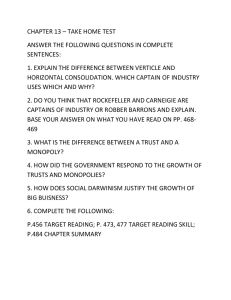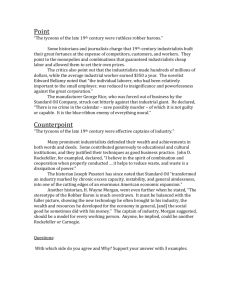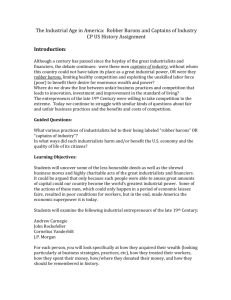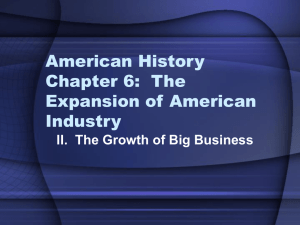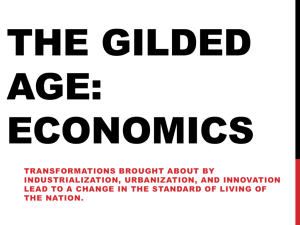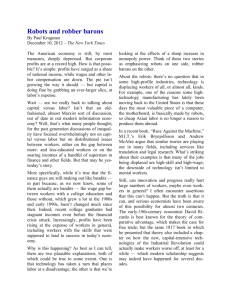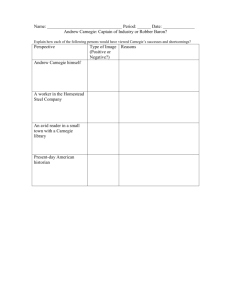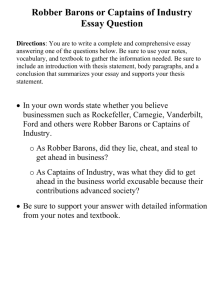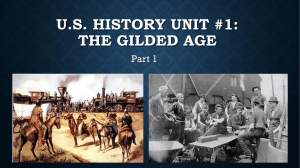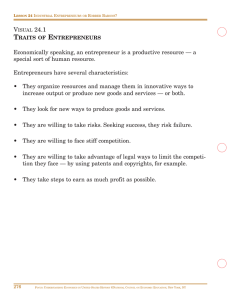Big Business and Social Darwinism
advertisement
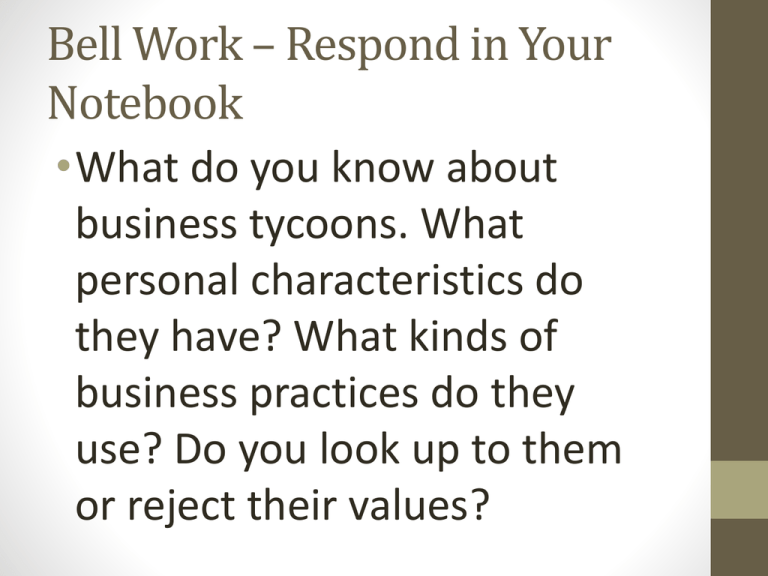
Bell Work – Respond in Your Notebook •What do you know about business tycoons. What personal characteristics do they have? What kinds of business practices do they use? Do you look up to them or reject their values? Big Business and Social Darwinism New Management Techniques • People searched for ways to make products more cheaply. • Businesses utilized better machinery and technology to make better products. • Detailed accounting systems. • Hired great people. New Business Strategies • Vertical Integration – When a company buys all of its suppliers, transportation systems, and every stage of the manufacturing process. • Horizontal Consolidation – When a company buys out all competing producers Successful Big Business Owners • Andrew Carnegie – U.S. Steel. • John D. Rockefeller – Standard Oil. • Many people became successful with hard work, shrewd investments and innovative business practices Social Darwinism • A new social theory to explain why some people are successful and others aren’t. • Based on Biological Evolution. • A free market, would ensure the “survival of the fittest” as in nature. • The winners are more fit than the losers. • This was dangerous because it states that your lot in life is because of inferiority. Robber Barons • Industrialists who were very successful but paid their employees very low and undercut their competition to put them out of business. • When all competition was dealt with, they would raise prices to gain back their lost wealth. The Sherman Anti-Trust Act • A law that made it illegal to interfere with free trade among the states or internationally by forming a trust, or creating a monopoly. • Trust – A group of people that ran separate companies as one large corporation. • Monopoly – A company that controls an entire industry or market. Point/Counterpoint • In your text on page 424, read the point/counterpoint articles and respond to the prompt, “Were the industrialists of the 19th century robber barons or captains of industry and why?
